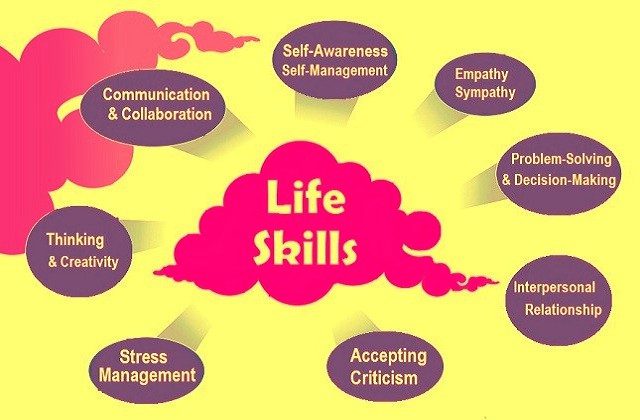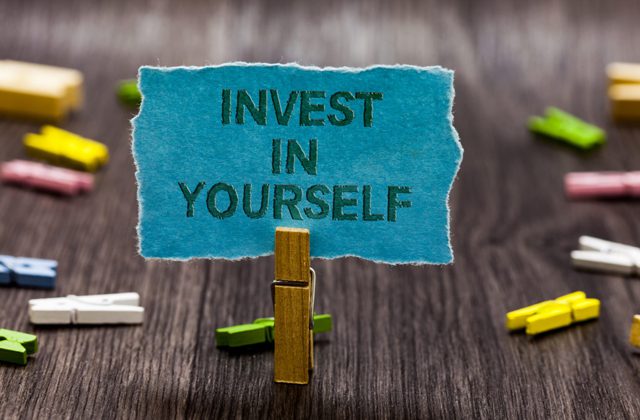
by Content Team | Feb 28, 2023 | Self-Awareness
Being accepted is something that almost all people want. After all, we evolved to thrive in social settings where getting along with others and earning respect and trust of our peers are the benchmarks for success.
Humans are social beings that desire connection, intimacy, and relationships with others. We all want to connect with people and feel accepted; part of that desire is caring about what other people think of us.
But what if you’ve started to give excessive importance to the judgments of strangers and friends? If you’re being held back by worrying about other people’s thoughts, we have some advice to help you stop.
Here’s how you can consider what others may think about you less.
5 Steps to Stop Caring What People Think of You
- Stop apologizing.
Say apologize if you’ve done anything wrong, and it’s right to do so in that circumstance. But resist the urge to constantly apologize for being who you are. There is no genuine reason to apologize for standing out from the herd, having differing beliefs, or caring about something important to you.
- Remember what is important to you.
Use your freedom to conduct actions that are motivated by your aims. Since this is your life, don’t try to impress others; instead, focus on what’s essential to you.
- Get out of your head.
Everyone will judge you. Yet it’s also crucial to remember that people don’t judge you nearly as harshly as your mind would have you believe. But why stress over things you can’t change? Instead, focus on making your decisions the best you can for your satisfaction since that matters most—how YOU feel about them.
- Be picky about who you surround yourself with.
Being around positive influences makes it simpler to be authentic and feel good about life than spending time with people who undermine your goals and drain the life force from your ambitions.
Even if living each moment as entirely authentically as possible is the ultimate objective, any progress is worth celebrating.
- Learn the appreciate the individuality of others.
Make an effort to celebrate and support others’ uniqueness. Avoid gossiping about people, having negative thoughts about people you don’t understand, and, most importantly, resisting the urge to pass judgment.

by Content Team | Feb 23, 2023 | Self-Awareness
The key to reality is self-awareness, and the moment we learn to control our ideas, we are released from the weight of unintentionally shaping our reality. It is our responsibility to take action to alter the outcomes. Your progress and capacity to develop into your highest self will be hampered if you remain stuck in the past or keep thinking the same constricting thoughts.
- Wake-up call:
We need to work on using our minds, which is the main cause of our suffering, confusion, and issues. We’ve been trained to focus the majority of our efforts on the outside while waiting for happiness on the inside. This is why most people who become materially wealthy will tell you that “money can’t buy happiness.” Time is wasted while you try to fill the gap, slowly killing you. Don’t waste happy moments, hoping that they will come at some point in the future.
- Know thyself:
We deal with a lot of negativity and aren’t even aware that we are creating it since the mind has been taken away from the genuine self. Knowing oneself is the key to calmness, the connection to compassion, and the ability to escape from madness. Start focusing on the things that are receiving your energy.
- We just want to be happy:
Our true selves want affection, joy, contentment, and all other positive emotions. Do not think that it is anything outside of oneself. The most upsetting situations occur when we attach our happiness to objects and then lose it. Because of this, you must alter how you perceive reality to experience joy in all circumstances. You change your energy to begin to live from a reality you were unaware of. All it needed was a mental shift for you to find alignment with your feelings.
- Invest in yourself:
Invest in your body, mind, and soul. Pay attention to the factors that shape reality. Discover how much your reality changes once you begin to invest in yourself. Vow today that you will stop delegating your authority to other people or things. True personal empowerment comes from having the ability to control your ideas and shape reality. Your time is valuable; don’t waste it on those who don’t value you for who you are. You should also always value yourself before others value you. You can improve, discover your purpose, and establish a connection with the source of your strength at every moment of your life. Keep your attention focused on it.
- Focus:
Do not wait for approval from others to live your life as you have chosen to. That is a complete waste of time. Who cares? Simply distance yourself. Your energy is yours; take it back!
- Grow:
Avoid becoming involved in drama and negativity. Nothing saps your creativity more than pointless arguments and chats about others. So much is wasted and damaged when we use our energies this way. Let’s go on from this point. Increase the vibration. Let’s use our power to help instead of to hurt.
- Elevate:
Many people are too busy to change, have no genuine plans, or have purposeless lives. Don’t let them divert your attention. Instead, own your truth and who you are. Standing up for your beliefs gives you personal empowerment.
- Determined:
You won’t want to continue doing what you used to do as your vibration rises. You’ll stop caring what other people think of you. Your desire to live fully, love sincerely, and pay close attention to everything that brings you joy will suddenly increase.
Final Words
Make a promise to yourself to be so resilient that nothing can jar your tranquility. To devote so much time to bettering oneself that one has no time for criticism of others. Being too big for concern, noble for anger, powerful for fear, and joyful to allow problems to exist. Declare, “Today, I choose to evolve.”

by Content Team | Feb 21, 2023 | Self-Awareness
“Money cannot buy happiness” is one phrase that we’ve all heard. But in actuality, we all spend money; for most of us, it is a finite resource. So how can we spend our hard-earned money to make us happy? When you make your next purchase, consider the beneficial insights from psychological studies about the relationships between wealth and happiness.
- Being Rich Isn’t Necessarily the Way to Happiness.
Happiness is influenced by money. Ask anyone who does not have it. For example, a handsome salary can help us live in safer homes, receive better nutrition and medical care, and have fulfilling jobs. The positive effects of money, like buying your dream house, are frequently offset by the negative effects, like working long hours or in more stressful jobs to maintain that income.
- Doing Makes us Happier than Having.
Most people believe that material possessions will bring them greater happiness than experiences. Physical items, like the most recent iPhone, handbag, or automobile, last longer than activities like attending a concert, taking a cooking class, or taking a vacation. We are joyful when we buy goods, at least in the short term. Yet, with time, we become accustomed to new things, and although they may have made us joyful and enthusiastic, they gradually become the new normal and disappear into the background.
Yet, the joy from spending money on activities tends to grow over time. We frequently share our experiential purchases with others, which is one reason.
- Consider Spending Money on Others.
Most people believe investing in themselves would result in greater happiness than investing in others. Nevertheless, when researchers measure people’s happiness before and after they spend their annual bonus, people report being happier when they give the bonus money to charity or spend it on others rather than themselves. Regardless of the size of the bonus, this happens. This phenomenon may be partly because helping others helps us feel good about ourselves.
Thus, consider whether this purchase will make you happy before taking out your wallet or clicking to place an order online. Think again if it will put your fundamental requirements in danger. If you have any extra cash, consider booking a trip or enrolling in a class to learn a new skill. Furthermore, remember that spending money on others or making charitable donations may make you feel better than spending it on yourself.

by Content Team | Feb 14, 2023 | Self-Awareness
Life skills are the abilities that allow people to adjust to and deal with the demands and difficulties of daily life. Every person may have a list of the most important abilities in life and wish to develop them to have a better job. Although they are not all necessary, life skills help ease day-to-day responsibilities. As a result, and irrespective of your profession or way of life, these seven abilities will enhance your perspective and result in various circumstances.
7 Life Skills Everyone Should Have
- Critical thinking
Examining news stories and recognizing your errors are both examples of critical thinking. The ability to interpret unclear situations and balance complex concerns are crucial for surviving in the modern world. Whether you’re managing a group of people or thinking through your personal difficulties, asking the appropriate questions can help you come up with innovative answers.
- Technology skills
More than merely turning your phone’s camera around or deleting emails are included in tech skills. They comprise the equipment, software, and procedures we utilize daily for business and leisure, such as electronic calendars, computer backups, and internet research. As a result, you can better arrange your life by navigating computers, software, and the internet.
- Confidence
It can be challenging to recognize your strengths at times. However, the most assured individuals have a beginning. It is crucial to develop confidence since it impacts many aspects of daily life, including employment, social interactions, and internal turmoil. Recognize your value and develop the ability to accept criticism without becoming upset.
- Empathy
How different people respond doesn’t matter; you can still relate to them. You can find answers, resolve disputes, and lead teams more skillfully when you look at issues from other people’s perspectives. Even under challenging circumstances, empathy promotes trust and a positive attitude.
- Communication
All relationships are built on communication. It enables people to communicate clearly and let others know what they require. Building strong connections and sharing all types of information requires being able to communicate verbally, digitally, and intuitively.
- Creativity
No matter what business you operate in, innovative thinking is crucial (or what you want to accomplish in your personal life). Giving yourself the freedom to be creative will enable you to see problems from new angles and develop creative solutions.
- Adaptability
Since change is constant in life, adapting is crucial, whether things go well or poorly. You’ll be able to deal with last-minute changes gracefully by cultivating a flexible mindset. Be open to novel concepts and circumstances. They are sometimes more advantageous than the original plan.
Final Words
You’ll face new obstacles, whether just starting adulthood or getting close to retirement. But, with the most crucial life skills at your disposal, you may face challenges with assurance and even enthusiasm. Of course, you never know what challenges life will provide you next. But you’re prepared for everything.

by Content Team | Feb 7, 2023 | Self-Awareness
Both personally and professionally, emotional intelligence tends to fuel one’s performance. Understanding and managing your emotions may hurry success in many facets of your life, from your self-assurance, empathy, and positivism to your social skills and self-discipline. An essential component of emotional intelligence is self-awareness, which teaches how to recognize one’s emotions and be aware of their causes and effects of them.
Below are five suggestions for understanding the fundamentals of emotional intelligence, which will boost your levels of self-assurance.
Top 5 Ways to Improve Self-Awareness
- Learning to identify your triggers.
Being aware of your triggers might help you become more emotionally intelligent. This is because it enables you to master the ability to control the outcome. It might provide you the capacity to control your emotions and remain calm.
- Never judge your feelings.
Humans naturally categorize their emotions as “good” or “bad,” “positive,” or “negative.” You tend to lose the ability to regard and be attentive to your sentiments when you judge them. By acknowledging the emotion for what it is, you will have the chance to understand it and discover what your mind has been attempting to communicate.
- You must question your opinions.
In the modern world, it is simple to get caught up in an “opinion bubble.” Those with similar viewpoints constantly reinforce their beliefs in this condition of existence. It is advised to give yourself enough time to study the opposing viewpoint and have your assumptions challenged. This will make you more receptive to new concepts.
- Pay attention to your behavior patterns.
Keep an eye on your behavior as you develop your emotional awareness. Take note of how you behave and how your daily life is affected when you experience particular emotions. Once we understand how we respond to our emotions, controlling them becomes effortless.
- Always celebrate the positive.
Enjoying and thinking back on positive life events is crucial to enhancing self-awareness. People who frequently feel positive emotions develop strength. Reflecting on unpleasant feelings is also essential for dealing with problems in the future.

by Content Team | Jan 12, 2023 | Self-Awareness
Each person can represent their best self. Knowing your purpose for living and being able to determine your path are incredibly amazing things. Through this, you become a better version of yourself as you find the purpose of your living. But one thing is necessary for it: investing in yourself.
But how do you invest in yourself?
- You find your passion.
Life is more meaningful when you find your passion. It inspires anticipation for the future. Following it motivates you to keep going and improve what you already have. One of your motivations to continue moving forward is to serve people in any way you can, whether through business, public speaking, nursing, or any other endeavor.
Discovering your passion can boost your self-confidence because you are working on something that is yours. Of course, it’s yours, and the more you use your enthusiasm for it, the stronger it becomes. You are getting closer to becoming the person that motivates people to strive in life the more you put effort into it every day.
Having found your passion, you feel complete. Because having that passion creates the pathway to the life you want to have, it makes you grateful and glad to be here. You need to keep moving forward and making progress until you arrive.
- You concentrate on the things that make your life better.
By keeping your attention on the good, you will attract good things. Stop focusing your efforts on activities that make you feel horrible about yourself and damage your self-worth. Being at a low vibration for days distances you from being the joyful, healthy, and strong version of yourself.
Reaching your objectives is pushed when you concentrate on the important things. It encourages you to be imaginative and gives you ideas for successful projects. It injects life with energy and removes the dullness of living without a purpose.
You may make your desire a reality by concentrating on it. It’s just that if you keep thinking about it, you’ll keep trying to find a way to make it happen. It provides you the hope and motivation to take the actions necessary to create the life you’ve always wanted
- You work your way up.
Learning about the things that help you become a better version of yourself today—emotionally, spiritually, physically, and mentally—is part of working your way up. Read books that will help you learn and gain knowledge for your improvement. Refuse to remain stationary in one spot. There is always room for improvement. Make every one of them matter.
Extending your abilities to carry out actions that advance your objectives is part of working your way up. Enhancing what you already have and working on improving it goes a long way. Success takes time, but expanding your knowledge and abilities will help you get there. Getting ahead entails assuming your power. You will gain enough wisdom, maturity, and experience to guide you toward becoming your highest self. Investing in yourself increases your sense of self-worth, self-love, and fulfillment. They are the diamonds that are valuable to you.













